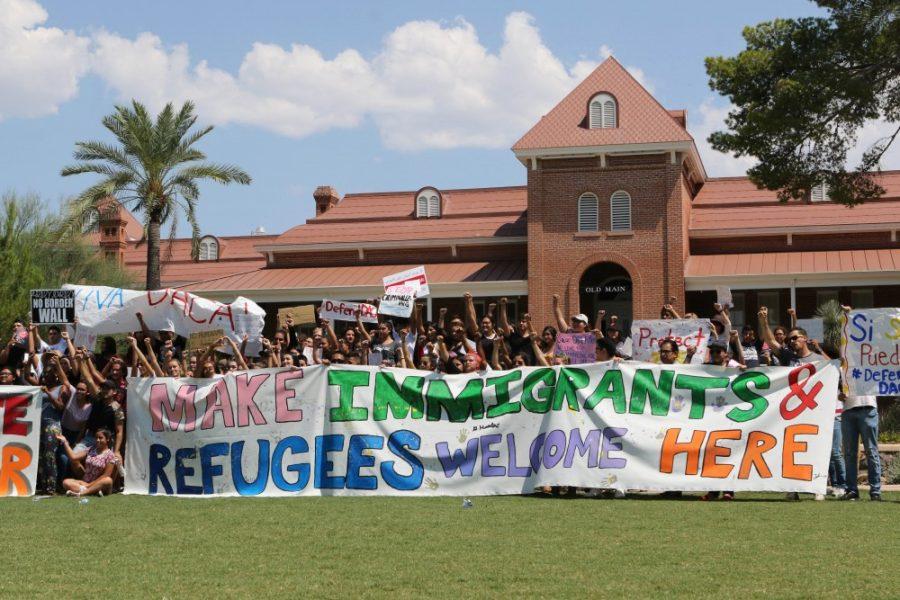Six months ago, I was shocked the president moved to actually end DACA. I’m even more shocked that we are fast approaching the March 5 deadline — and Congress has nothing to show us. I know people are calling their congressmen and congresswomen. I have friends who are DACA recipients, and they are protesting in Washington, D.C. — yet it feels like nothing the people do matters.
I am writing today to remind fellow supporters of DREAMers that that’s not true. No matter what our government decides to do and not do, we still have our personal wills — a force that history has shown is more powerful than we may think.
If DACA expires, the 19,000 students who already lost their status will face the risk of deportation and will no longer be able to work. Each day afterward, 1,000 more DACA recipients will lose their protection.
Students will still be able to attend school, however. The U.S. Supreme Court could hear a case on DACA as early as Friday, though we cannot expect it will have the outcome we want. (We can always hope!)
We have to do more than hope and care. Actions, even at the micro-level, matter. It was the actions of participants in the Civil Rights Movement — Rosa Parks refused to give up her seat, protesters organized sit-ins at the Woolworth lunch counter, etc. — that gave way to bigger events and bigger marches, which led to the Civil Rights Act.
If the government leaves us no other option, we too can enact change by acting on our own definition of morality.
RELATED: DACA community and allies respond to President Trump’s State of the Union
An example: In my senior year of high school, I worked at Chick-fil-A with a good friend, who had DACA status. Our boss was a white, evangelical-Christian franchise-owner (make whatever assumptions you want — we certainly did!). He eventually moved away, I went to the UA and my friend stayed, giving out chicken to pay her way through college.
When the president announced the end of DACA, I immediately thought of her. And apparently, so did our boss. He called her one day. “Can you tell me what DACA is?” he asked.
She started at the beginning.
He concluded the conversation with, “Well, if you need to, you can stay with my family.”
My friend and I were both really surprised. For her, I know it made a big difference. She felt wanted in her community. For me, the phone call was a powerful reminder I always have the power to stand for what is right. We all do.
Can you imagine if every DACA recipient had four or five or more people looking out for them, prepared to protect them? Think of the message it would send to Congress: 535 old people can’t figure out what to do, even though millions of people in America, across party lines, have figured out exactly what is right.
That same year, I met Lupe, another DACA recipient. She was open about her status to her friends and teachers. Our academic decathlon coach told her if she was ever threatened to be deported, he would handcuff himself to her so that immigration would have to take them both.
Many teachers said similar things to her. I am confident they would actually do so, if circumstances required it — even if laws change, even if they’d lose their jobs, even though she’s out of high school now. The government can never stop us from acting on what we know is right; the people will always have extraordinary powers of civil disobedience.
Do you care about the people living and working here under DACA? Then tell one of them you do. More importantly, what would you do for that person if they lost their legal power to work? If immigration workers came to deport them?
And to the DACA recipients, let us know what we can do. I can’t even pretend to know what’s best for you all, and neither can any of us. But your community cares and will do what it can. We will stand with you.
Follow Daily Wildcat on Twitter.









